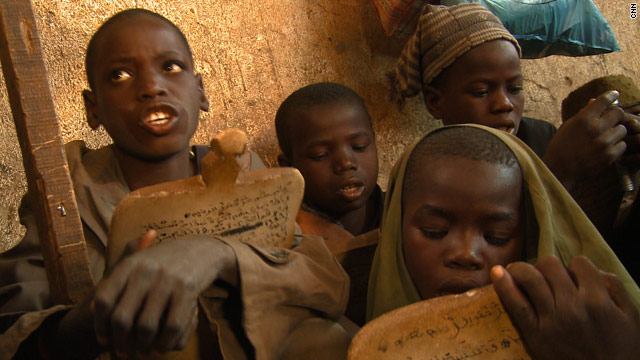“Almajiri”, who roam the streets in the northern part of the country,
are not Nigerians, Kano State governor Abdullahi Ganduje said on Monday.
“A lot of them are foreigners from the Niger Republic, Chad, and
Cameroun,” Ganduje said while declaring open, a 3-day retreat organised
by the Universal Basic Education Commission (UBEC) in Kano.
The theme of the retreat is, ”Enhancing Basic Education in Nigeria
towards a Robust Institutional Strengthening and Effective Stakeholder
Engagement”.
“From the survey, we have conducted, most of the “Almajiri” roaming our
streets are from Niger, Chad, and the northern part of Cameroun.
“Once you improve the quality of ‘Almajiri’ education system, you are
inviting other ‘Almajiri’ from other places to come to your state. That
is another problem.
“The northern governors are putting more pressure toward having a
universal legislation that will limit the migration from one state to
another,” he said.
He said that the retreat was “very vital and important, especially at
this moment that the country is gradually coming out from the COVID-19
pandemic which has affected education in the country”.
According to Ganduje, the retreat is also important because it is coming
at a time education has become the first victim of uncontrolled
population, especially when it is not matched with appropriate economic
development.
Ganduje disclosed that free and compulsory primary and secondary school
education, as well as the transformation of the ”Almajiri” education
system, were some of his major priorities in the education sector.
Earlier, the Executive Secretary, UBEC, Dr. Hamid Bobboye, had said that
the retreat was aimed at providing an opportunity for the board and
management to brainstorm, exchange ideas and strategies toward moving
basic education forward.
He said that the board and management would review strategic priorities
and propose workable changes in the institution’s structure to drive
both the medium and long-term goals of the commission.
“We will also re-assess the legal framework, service delivery model,
share emerging developments and trends, including global best practices,
for better performance.
“This retreat could not have come at a better time than now when Nigeria
and, indeed, the entire world, is facing a common enemy – COVID-19.
“The pandemic is serving as an eye-opener for all stakeholders in basic
education,” he said. (NAN)



